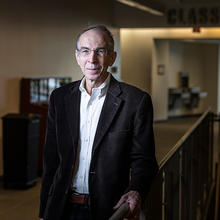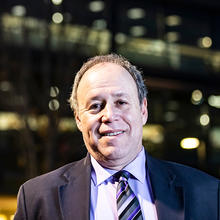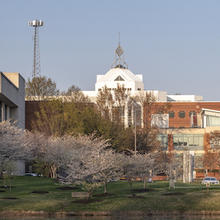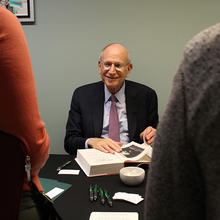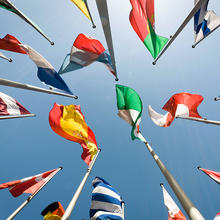- March 6, 2019
What would it take for one group in a conflict to be more compassionate toward their “enemy”? Researchers from George Mason University’s School for Conflict Analysis and Resolution (S-CAR) and the Department of Psychology are heading to Rondine—a two-year “laboratory for peace”—to find out.
- February 25, 2019
The Holocaust had ended by the time George Mason University professor Marc Gopin was a child, but the suffering it caused his family, neighbors and teachers had not.
- January 22, 2019
Amadu Koroma was only three at the start of the Sierra Leone War, when his uncle carried him on his shoulders as their family fled to Guinea for safety. Though the war ended in 2002, the consequences still affect Koroma, and they motivated him to make the most of his education.
- January 22, 2019
There’s a familiar rule at most family gatherings: Don’t talk about religion or politics.
But for the past 10 years, the Dialogue & Difference class and project at George Mason University have been turning that rule on its head. - October 11, 2018
Harry Truman was Jimmy Carter’s political hero, according to Stuart Eizenstat, Carter’s chief domestic policy adviser, and he sees parallels between the two leaders.
“Both presidents left office highly unpopular,” said Eizenstat, author of “President Carter: The White House Years.” “Truman is now remembered much more for his achievements than for his failures, and I hope that my book will have a similar reassessment of Jimmy Carter as president.” - October 1, 2018
When George Mason University got a message in February from The New School that scholars abroad were being persecuted and needed a safe haven to continue their lives and academic work, the response was a definitive “yes” to welcome them.

